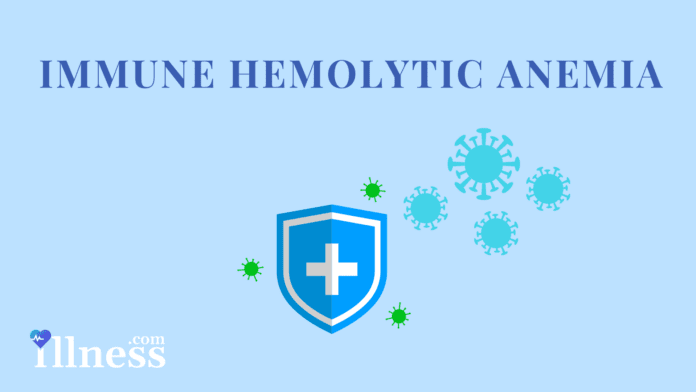Overview Of Immune Hemolytic Anemia
Anemia is a condition in which the body does not have enough healthy red blood cells. Red blood cells provide oxygen to the body’s tissues. Red blood cells last for about 120 days before the body gets rid of them. In hemolytic anemia, red blood cells in the blood are destroyed earlier than normal. Immune hemolytic anemia occurs when antibodies form against the body’s own red blood cells and destroy them. This happens because the immune system mistakenly recognizes these blood cells as foreign.
Commonly Associated With
Anemia – immune hemolytic; Autoimmune hemolytic anemia (AIHA)
Causes Of Immune Hemolytic Anemia
Possible causes include:
- Certain chemicals, drugs, and toxins
- Infections
- Transfusion of blood from a donor with a blood type that does not match
- Certain cancers
- When antibodies form against red blood cells for no reason, the condition is called idiopathic autoimmune hemolytic anemia.
The antibodies may also be caused by:
- A complication of another disease
- Past blood transfusions
- Pregnancy (if the baby’s blood type is different from the mother’s)
- Risk factors are related to the causes.
Symptoms Of Immune Hemolytic Anemia
You may not have symptoms if the anemia is mild. If the problem develops slowly, symptoms that may occur first include:
- Feeling weak or tired more often than usual, or with exercise
- Headaches
- Problems concentrating or thinking
If the anemia gets worse, symptoms may include:
- Lightheadedness when you stand up
- Pale skin color (pallor)
- Shortness of breath
- Sore tongue
Exams & Tests
You may need the following tests:
- Absolute reticulocyte count
- Direct or indirect Coombs test
- Hemoglobin in the urine
- LDH (level of this enzyme rises as a result of tissue damage)
- Red blood cell count (RBC), hemoglobin, and hematocrit
- Serum bilirubin level
- Serum-free hemoglobin
- Serum haptoglobin
- Donath-Landsteiner test
- Cold agglutinins
- Free hemoglobin in the serum or urine
- Hemosiderin in the urine
- Platelet count
- Protein electrophoresis – serum
- Pyruvate kinase
- Serum haptoglobin level
- Urine and fecal urobilinogen
Treatment Of Immune Hemolytic Anemia
The first treatment tried is most often a steroid medicine, such as prednisone. If steroid medicine do not improve the condition, treatment with intravenous immunoglobulin (IVIG) or removal of the spleen (splenectomy) may be considered.
You may receive treatment to suppress your immune system if you do not respond to steroids. Drugs such as azathioprine (Imuran), cyclophosphamide (Cytoxan), and rituximab (Rituxan) have been used.
Blood transfusions are given with caution because the blood may not be compatible and it may cause more red blood cell destruction.



